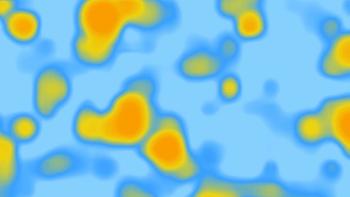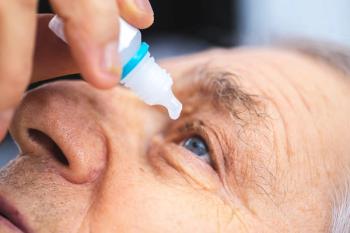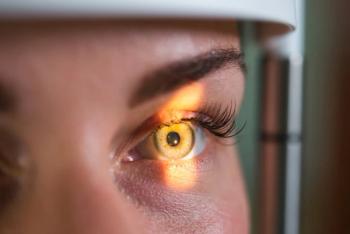
- Optometry Times August 2019
- Volume 11
- Issue 8
Q&A: Barbecue, OD-MD communication, lifelong learning
Meet Jacob R. Lang, OD, FAAO, of Stillwater, MN.
Where did you grow up?
I grew up in a small town in Minnesota called Glenwood about two hours northwest of Minneapolis. I grew up on a dairy farm. When I was a kid, my dad also worked at a manufacturing company that builds baggage carts that you see at airports. My mom was at home when I was a kid, and then she worked in retail clothing.
Why ocular disease and contact lenses?
I had iritis before I was a teenager. After going to the ER several times and then finally visiting an optometrist who helped me, seeing that division for medicine was big for me in saying there are other things out there and all doctors aren’t created equally nor do they know everything. While I was in optometry school in Boston, I gravitated to the front of the eye.
Previously by Vernon Trollinger: Q&A: OD research, the future of dry eye, being a wild man
Why a residency in contact lenses and should more OD students go that route?
Optometry needs more optometry-trained ODs. I’m biased because I help run one. The level of education and dedication that goes into that year of residency is important and helpful in an OD’s career. I realized in my fourth year that I didn’t know enough, and I wanted to. I wanted to set myself up as someone who did know a lot and to give myself and my career the opportunities to continue to grow my entire career. I saw residency as a next step to pushing myself forward on the forefront of the profession.
What made you get involved again with academics?
The integrated care model we have lends itself to educating others, whether within the practice or bringing in outside doctors, externs, and residents. I wanted to make other doctors better, so we reached out to schools and started doing what has evolved into an ocular disease residency program. Maybe later in my career I could see joining academia, but there are advantages to private practice and academic worlds. There are more opportunities to be busier with patient care in a private practice setting. There are less rules from a patient care and financial standpoint. In academia, there are more hoops to jump through. I think the ship is a faster steering in a private practice than in academia, and I enjoy that.
Related:
Do you see a different mix of ocular disease versus a suburban or urban practice?
We are on the east and north east side of the metro. We have offices in both Minnesota and Wisconsin. Because of that, we see a diversity of conditions. In rural settings, we see more injuries from farm work and people who let things go for lack of access. In urban settings, patients have let things go too long because of financial or access problems because of insurance, and the disease varies. We have a large immigrant population in St. Paul from Somalia, and sometimes I will see things like trachoma, which we don’t see in the United States.
What's something your colleagues don't know about you?
I like to spend a lot of time outdoors-fishing, hunting, golfing. Most of my free time is spent skiing and being outdoors.
Related:
Why Minnesota?
Minnesotans are like salmon-we all come home to die. [Laughs] After optometry school and my fellowship, the Midwest and I have a lot of ties and I love the change of seasons. It is challenging, but some of that is life. I think that the lessons of living in the Midwest, being prepared for weather and learning how to deal with adversity, are good lessons for life.
What's your guilty pleasure food?
Barbecue is something I like a lot. Brisket, pulled pork…that whole world is dear to my heart.
How can ODs and MDs work better together?
It all comes down to communication. I don’t think there is much different between us now, and we are seeing a generational shift where ODs and MDs realize we need each other. That’s hard to say sometimes for both sides. I think we better each other when we work together, and I think that betters patient care.
Related:
How do you see what you do changing in the next 10 years?
I think we are going to have more to do. More responsibility in eye care is going to fall onto ODs just because of the need. There is going to be a wave of patients retiring and needing more eye care, and I think there will be less ophthalmologists around as they are retiring and their residency enrollments are flat. Optometry is going to have this opportunity and necessity to fill the gap, to take over things that we are good at, and hopefully delegating more operating time to our MD colleagues so they can do better and more surgery.
What one piece of advice would you offer ODs following behind you?
Lifelong learning. Don’t give up, don’t get complacent. Don’t feel like your cup is full. Realize that there is more, everything is evolving, and we have to stay on top of things all the time to know what’s next, how to do the job better, and how to better care for patients. My advice is continuing that learning through an entire career and continuing to better yourself as a practitioner.
Related:
Do you have any regrets?
[Laughs] I like to think no, but know I do. I try not to focus on them. I can’t say there is a big regret. I think you find your way in life, and that’s the way life is supposed to be. I see my regrets more as life lessons than regrets.
What's the craziest thing you ever did?
Lived in Minnesota. [Laughs] I was in Alaska for a couple of weeks between optometry school and residency. I had a friend move up there after high school. Me and another buddy went up there to see him. We rented a vehicle and drove out into the boonies. We hiked in 13 miles with the packs and had to cross rivers. Moose came popping out of the woods between me and my buddy while we were fishing. They kept moving and didn’t come toward us. We had lots of those experiences where you don’t have control and nature is in charge. So beautiful and a great experience, but you wonder if something happens here, it isn’t going to be great.
Articles in this issue
over 6 years ago
What happened over 10 yearsover 6 years ago
The possible connection among kids, devices, and myopiaover 6 years ago
OD research at ARVO 2019over 6 years ago
How to guide patients in the use of digital devicesover 6 years ago
Accident or child abuse?over 6 years ago
Controversies in pediatric refractive developmentover 6 years ago
How to treat dry eye in the pediatric and young adult populationover 6 years ago
Is optometry ready for the age of smartphone imaging?over 6 years ago
How climate change affects allergiesNewsletter
Want more insights like this? Subscribe to Optometry Times and get clinical pearls and practice tips delivered straight to your inbox.









































